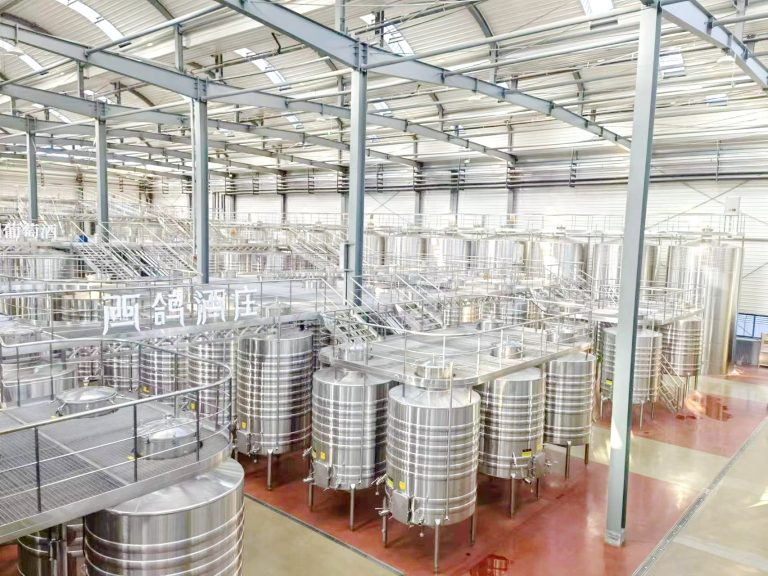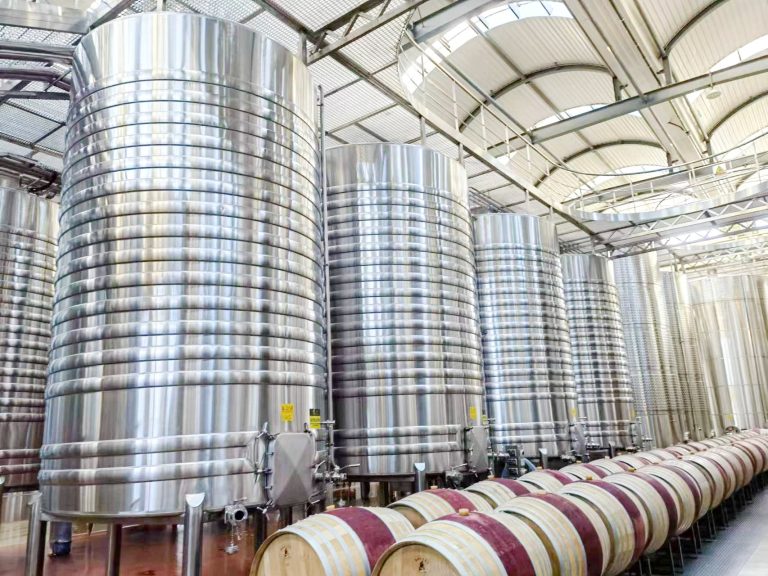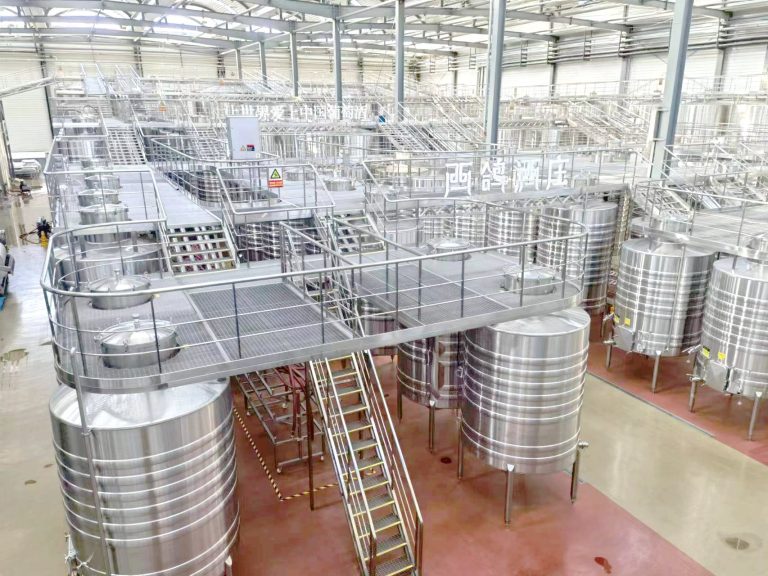
Menu




6000L wine tanks with spiral cooling coils are excellent for both fermentation and storage purposes in winemaking. The spiral cooling coil is a popular feature because it helps regulate the temperature of the wine during fermentation, which is crucial for achieving the desired flavor profile and ensuring the yeast works optimally.
6000L wine tanks with spiral cooling coils are commonly used in wineries for both fermentation and storage purposes.
These wine tanks provide a controlled environment for the fermentation process, allowing winemakers to regulate temperature and ensure the quality of the wine.The spiral cooling coils outside the tanks help to regulate the temperature during fermentation, which is crucial for controlling the fermentation process and preserving the desired flavors and aromas in the wine.
Additionally, these tanks can also be used for storage after fermentation is complete, providing a stable environment for aging and maturing the wine.
1.Sanitary Stainless steel 304,
2.Effective capacity: 6000L;
3.Conical centric top;
4.Sample valve;
5.CIP-rotary spray ball;
6.With sprial cooling col;
7.Wine outlet and drain outlet assembly;
8.Fully welded cladding;
9.Side rectangle manway;
10.RTD probe;
11.Butterly valves;
12.Sloped bottom;
13.2’’PVRV;
14.Ladder rack;
15.Bimetallicthermometer;
16.Liquid level tube;
17.Stainless steel legs with screw assembly to adjust leg height.
A wine tank is a vessel specifically designed for the fermentation, storage, and aging of wine. These tanks come in various sizes, shapes, and materials, and they play a critical role in the winemaking process.
Here are some key features and considerations regarding wine tanks:
Wine tanks are commonly made from stainless steel, although other materials such as oak, concrete, and fiberglass may also be used. Stainless steel tanks are popular due to their durability, ease of cleaning, and inertness, which helps preserve the flavor and quality of the wine.
Capacity: Wine tanks come in a range of capacities, from small tanks suitable for boutique wineries to large tanks used by commercial-scale operations. The capacity of a tank is typically measured in liters or gallons.
Shape: Wine tanks can be cylindrical, conical, or square in shape, with each shape offering different advantages. Cylindrical tanks are efficient for fermentation and storage, while conical tanks facilitate the settling of solids and sediment. Square tanks may be preferred for space-saving reasons or for certain winemaking techniques.
Open vs. Closed Top:
Wine tanks may have either an open top or a closed top. Open-top tanks allow for easier access during punch-downs and other winemaking tasks, while closed-top tanks are more common in commercial operations and offer better protection against oxidation and contamination.
Cooling and Heating:
Many wine tanks are equipped with cooling jackets or coils that allow for precise temperature control during fermentation and aging. Some tanks may also have heating elements for temperature maintenance during cold weather or for certain winemaking processes.
Wine tanks may be equipped with various accessories and features, including:
Manways: Large openings for easy access to the interior of the tank for cleaning, sampling, and maintenance.
Racking ports: Ports for transferring wine between tanks or for bottling.
Sampling valves: Allows winemakers to take samples of the wine for analysis and quality control.
Pressure relief valves: Prevent over-pressurization of the tank during fermentation or aging.
Insulation: Insulated wine tanks help maintain stable temperatures and protect the wine from temperature fluctuations. Insulation may be applied to the tank walls or included as part of the tank’s design.
Overall, wine tanks are essential tools in the winemaking process, providing winemakers with the means to ferment, store, and age wine while maintaining quality and consistency. The choice of tank depends on factors such as production volume, winemaking style, and budget.
Ready to simplify things?
Let us help you. Use the table to describe your needs as best as possible. One of our friendly staff will be in touch with you to provide helpful advice and outline next steps.

Chenma Company provides customers with quality service with the concept of “quality for survival” and “reputation for development”.
Copyright © 2023. All Right Reserved.